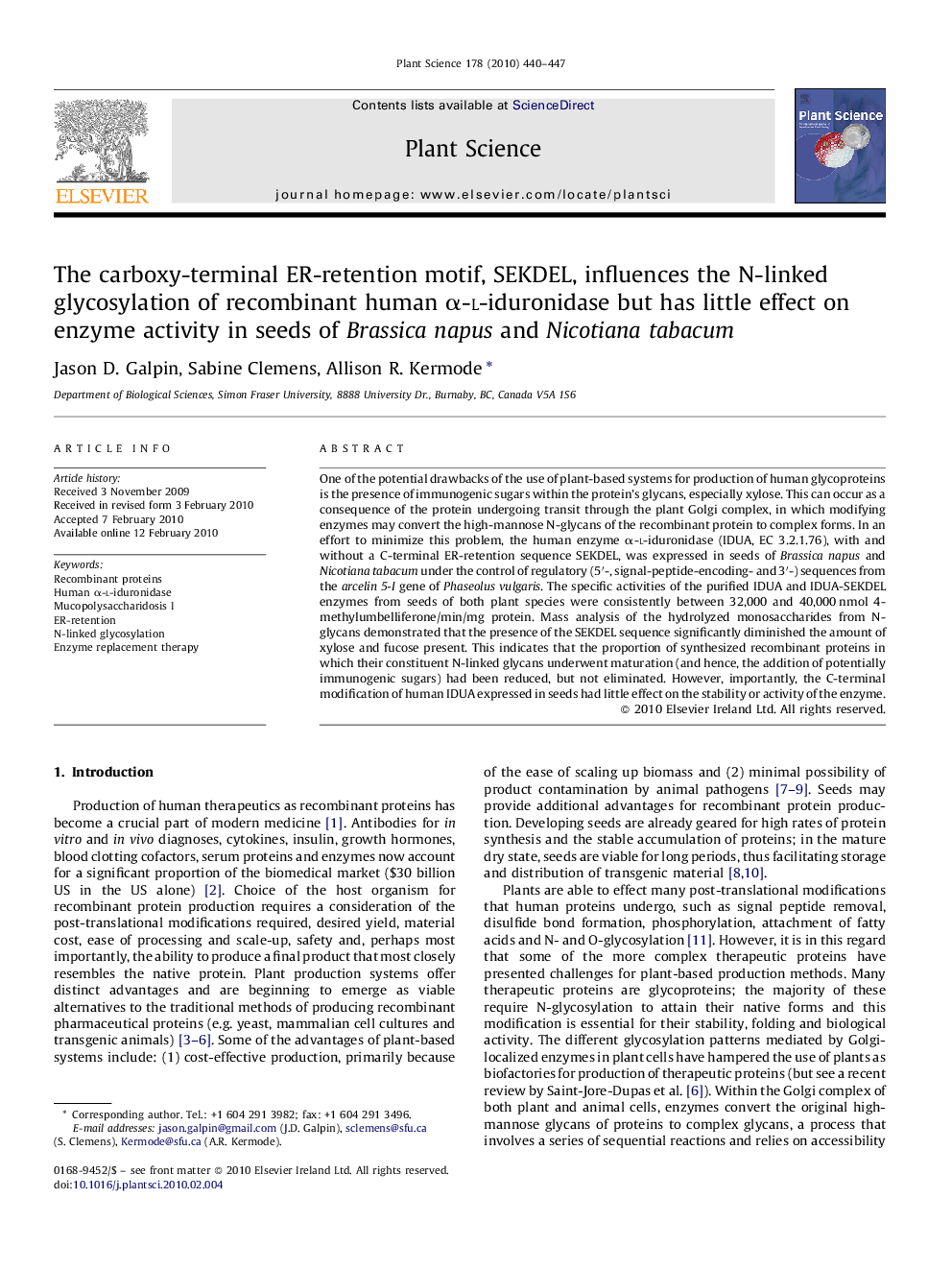| Article ID | Journal | Published Year | Pages | File Type |
|---|---|---|---|---|
| 2018114 | Plant Science | 2010 | 8 Pages |
Abstract
One of the potential drawbacks of the use of plant-based systems for production of human glycoproteins is the presence of immunogenic sugars within the protein's glycans, especially xylose. This can occur as a consequence of the protein undergoing transit through the plant Golgi complex, in which modifying enzymes may convert the high-mannose N-glycans of the recombinant protein to complex forms. In an effort to minimize this problem, the human enzyme α-l-iduronidase (IDUA, EC 3.2.1.76), with and without a C-terminal ER-retention sequence SEKDEL, was expressed in seeds of Brassica napus and Nicotiana tabacum under the control of regulatory (5â²-, signal-peptide-encoding- and 3â²-) sequences from the arcelin 5-I gene of Phaseolus vulgaris. The specific activities of the purified IDUA and IDUA-SEKDEL enzymes from seeds of both plant species were consistently between 32,000 and 40,000 nmol 4-methylumbelliferone/min/mg protein. Mass analysis of the hydrolyzed monosaccharides from N-glycans demonstrated that the presence of the SEKDEL sequence significantly diminished the amount of xylose and fucose present. This indicates that the proportion of synthesized recombinant proteins in which their constituent N-linked glycans underwent maturation (and hence, the addition of potentially immunogenic sugars) had been reduced, but not eliminated. However, importantly, the C-terminal modification of human IDUA expressed in seeds had little effect on the stability or activity of the enzyme.
Keywords
Related Topics
Life Sciences
Agricultural and Biological Sciences
Plant Science
Authors
Jason D. Galpin, Sabine Clemens, Allison R. Kermode,
